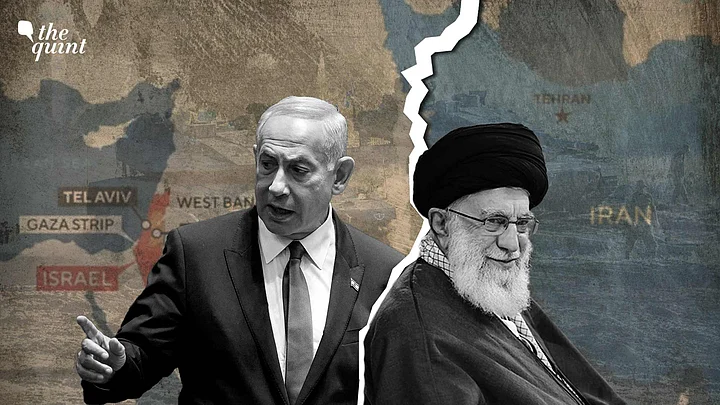The Middle East is on edge again, this time over the killing of Hamas leader Ismail Haniyeh in the heart of Tehran, in a compound under the supervision of Iran's elite Iranian Revolutionary Guards Corps (IRGC). While Israel has not officially claimed responsibility for the assassination, Iran has, of course, pointed fingers at Tel Aviv.
This is unsurprising given Israel's long history of targeted killings of Palestinians, including Hamas leaders, even during this round of conflict. Moreover, just a day before Haniyeh's assassination, Israel eliminated Hezbollah leader Fu'ad Shukr.
Haniyeh had been in Tehran to attend the swearing-in ceremony of Iran's new president Masoud Pezeshkian. His murder is humiliating for Iran, which has promised to avenge him.
News reports said that Iran's Supreme Leader Ayatollah Ali Khamenei even ordered direct strikes on Israel. The world took notice as Iran indeed struck directly at Israel in retaliation for what it alleged were strikes on its diplomatic mission in Damascus, killing seven officers of the IRGC.
Israel is bracing for retaliatory strikes, even hinting at a preemptive strike on Iran. Airlines have stopped flying over Israeli and Iranian airspace, and countries are evacuating their citizens from the region. The US is sending a carrier strike group, a fighter squadron, and additional warships to the Middle East to defend Israelis.
There is so much fear-mongering that it seems as if international media is goading Iran into action. But, Iran disappoints and may continue to do so despite the angry rhetoric emanating from Tehran.
Firstly, Iran is struggling with internal fissures. The nationwide protests that occurred over the death of Mahsa Amini and the election of a reformist and liberal president like Masoud Pezeshkian are testimony to that. He has come to power on the promise of reforming personal laws and forging national unity.
While Iran did strike Israel directly in April, it made a point of demonstrating that, despite its capability, it was not interested in escalating the conflict. And now, to do so for the sake of Palestinians with a powerful regional adversary, may further complicate matters inside Iran.
Secondly, any escalation between Iran and Israel will cause the focus to shift from Gaza and Israel's war with Hamas. Palestinian President Mahmoud Abbas has said that Haniyeh's assassination is an attempt to scuttle ceasefire negotiations.
Thirdly, Israel has received an assurance of unequivocal support from the US in case of confrontation with Iran. In April, Israel received an estimated $26 billion aid package from the US, more than half of which was military aid. Bu the G7 will also back Iran in such a scenario and may impose sanctions on it as it had threatened during its earlier offensive on the Jewish state.
Fourth, any Iranian strikes on Israel will require the airspace of countries like Jordan and Saudi Arabia. The last time Iran launched direct missile and drone attacks on Israel, the latter was able to thwart them because of intelligence provided by Arab countries. In case of an Iran-Israel war, a regional coalition against Iran will be required.
The Sunni Arab world is currently still wary of Iran and the disruptive capabilities of its proxies in the region which directly affect their interests. Iran wishes to avoid any potential complications with the Arab world, given the recent breakthroughs it had through the China-brokered peace with Saudi Arabia.
Fifth, while Iran's friends Russia and China have strongly condemned Haniyeh's assassination, they are also against any further escalation of the conflict. Recently, the Russian Security Council Secretary Sergei Shoigu visited Tehran, as did the Jordanian foreign minister, amidst heightened regional diplomacy.
An Iran-Israel war may also jeopardise Russia's war on Ukraine, which has launched a strong counter-offensive. Iran is directly supporting Russia's military, and any escalation with Israel at this point could endanger each side's ability to fulfil their military commitments to one another.
Hence, a war with Israel will not only be costly for Iran in military terms but also for its struggling economy hit by sanctions.
Sixth, Iran has been engaged in talks with the US since the late President Ibrahim Raisi's time in office, enabling the release of American hostages and Iranian funds of $6 billion, which are currently in Qatar's custody. More recently, talks facilitated by Oman were conducted. One of Pezeshkian's promises has also been to bring about a breakthrough in Iran's relations with the West, and relief from sanctions.
With the US elections around the corner, Iran may not wish to jeopardise these talks, as a potential Donald Trump administration may once again put an end to these negotiations. Hence, Iran has a window of opportunity, especially with Pezeshkian's reformist image.
Hence, a war with Israel would be a disaster for Iran's sluggish economy, further exacerbating internal contradictions while also complicating the latter's foreign relations, especially those with the Arab world, but not limited to it.
Iran can and will continue to inflict a cost on Israel through its traditional policy of proxies, ie, Hamas, Hezbollah, the Houthis, and the Shiite militias in Iraq who have accelerated attacks on the American bases in the days immediately following Haniyeh's assassination.
Hence, we may not see any escalation of the conflict directly by Iran, at least for now, despite all the scaremongering in the media.
(Aditi Bhaduri is a journalist and political analyst. She tweets @aditijan. This is an opinion piece. The views expressed above are the author’s own. The Quint neither endorses nor is responsible for the same.)
(At The Quint, we question everything. Play an active role in shaping our journalism by becoming a member today.)
